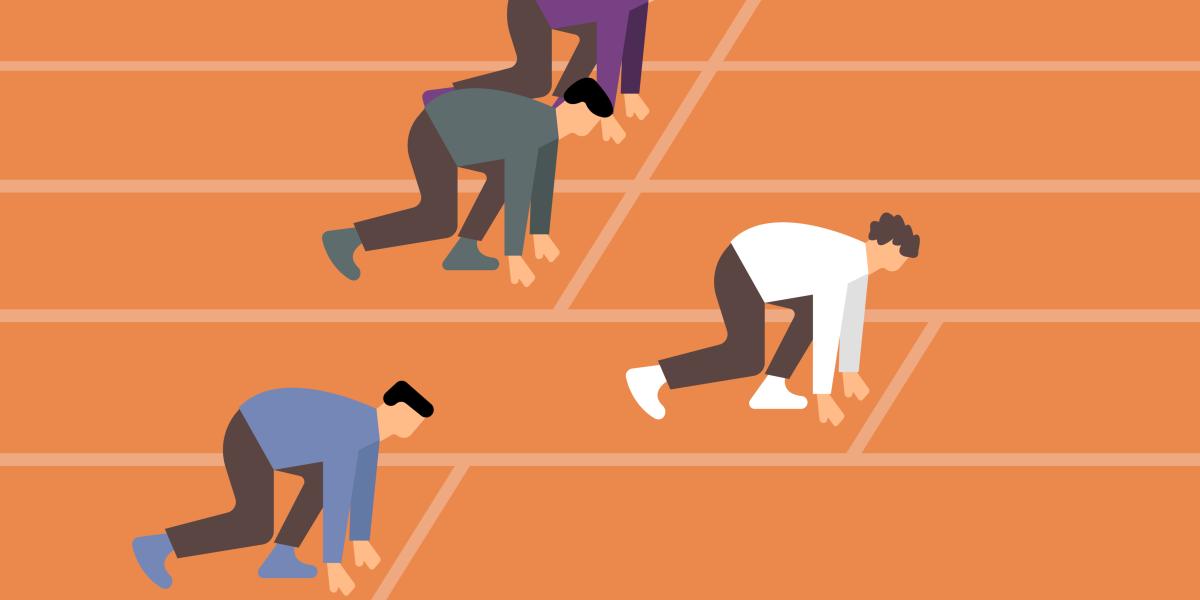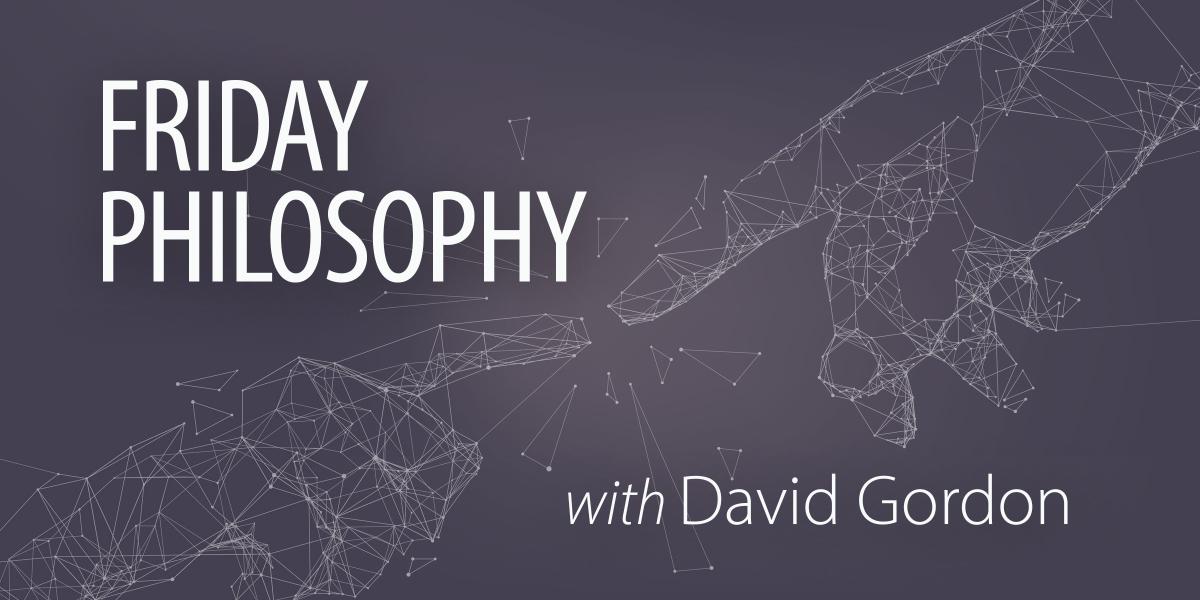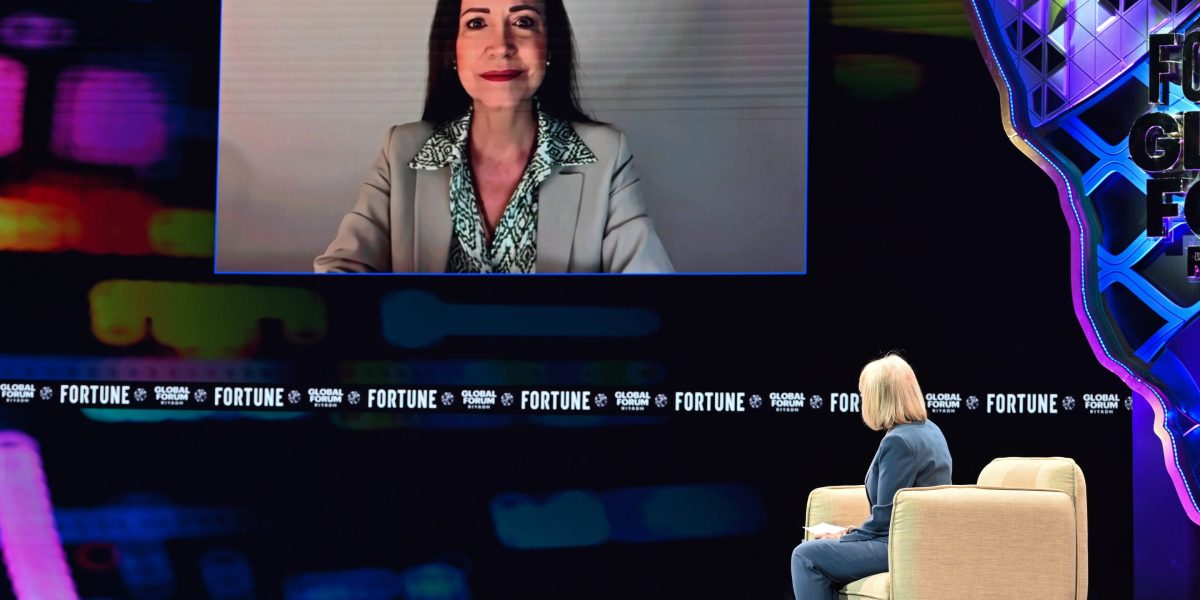One of the most difficult fallacies to recognize, define, and combat is that of a false analogy—two things may share some similarities and are assumed to be alike in other respects without sufficient evidence. Sometimes a false analogy is obvious. For example, tennis and soccer both use balls and are played on rectangular fields, therefore, they are the same. Other false analogies, however, are more subtle and often begin with, “It’s like…” or “Life is like…”
The reader may be reminded of the famous line from Forrest Gump, “…life was like a box of chocolates…” For the analogy to be valid, there has to be a true connection point between the two things being compared (e.g., life and a box of chocolates), but analogies are always limited, at best. Usually there is some connection between the two things being compared, but other considerations are left out to the point that the analogy obscures reality rather than clarifying it. This can be seen in the popular “life is like a race” or the “different starting-points” analogy.
The Different Forms of the Analogy
The starting-point or starting line or race analogy takes other forms, but was probably best articulated by Lyndon Johnson, who is quoted within the quote below. More recently, it has been stated by Ibram X. Kendi in his How to Be an Antiracist,
The only remedy to racist discrimination is antiracist discrimination. The only remedy to past discrimination is present discrimination. The only remedy to present discrimination is future discrimination. As President Lyndon B. Johnson said in 1965, “You do not take a person who, for years, has been hobbled by chains and liberate him, bring him up to the starting line of a race and then say, ‘You are free to compete with all the others,’ and still justly believe that you have been completely fair.” As US Supreme Court Justice Harry Blackmun wrote in 1978, “In order to get beyond racism, we must first take account of race. There is no other way. And in order to treat some persons equally, we must treat them differently.” (emphasis added)
To be fair, blacks in America had been under a legalized racial caste system, however, Kendi and others of similar views do not want to do away with racial caste systems, they just want to reverse them. We can note that the starting-point or race analogy is key to their argumentation—nothing can be fair until starting points in life are equalized. A similar type of argument is made by John Rawls in A Theory of Justice where he makes his “Veil of Ignorance” analogy—that if we were somehow behind this veil of ignorance and could choose how the world system ought to be before we were born, not knowing our circumstances at birth, then we would choose egalitarianism just to be safe.
Another popular expression of this analogy—especially in schools—is where a rigged “race” is set up, but participants are told to take a step forward depending on unchosen circumstances in their lives (e.g., if both of your parents are still married, etc.). This is meant to demonstrate that—in any given person’s life—there are many unchosen factors and circumstances that make other things easier or more difficult for them.
Understood rightly, this analogy could make several good points. It could teach us circumspection, sympathy, gratitude, humility, compassion, looking beyond ourselves, studying causes of differentials (besides the monocausal explanation of systemic discrimination), etc. But such an exercise is often misused to conclude that differences and inequalities are necessarily the result of injustices and discrimination, that these are the only relevant factors to be considered, and that justice requires egalitarian equalism—enforced by the state—to provide equal opportunity (“starting-points”) for all people that will be measure in equalized outcomes.
What the Analogy Gets Right
Why the race or starting point analogy is challenging is because it is not entirely wrong. The analogy actually recognizes some fundamental facts about human experience—humans have differences, chosen and unchosen, that make them unequal from each other both in opportunities and outcomes.
This is what intersectionality is about; belonging or not belonging to certain groups which are thought to have or lack certain levels of power/privilege (see the Intersectionality Wheel of Privilege and Power). While we may argue over the legitimacy of some of the categories (e.g., fat versus thin, etc.), and while we should reject the collectivist categorizing of individuals, we can legitimately note that there are many—possibly uncountable—intersecting differences between humans which contribute to inequalities between them. For example, a white man born in America to two loving parents who are married will have different opportunities and experiences than a girl born in an Indian slum or an English quadriplegic. In fact, these humans will have different and unequal opportunities from each other and from every other individual throughout space and time. Human experience is almost infinitely diverse.
Thomas Sowell, in The Quest for Cosmic Justice, makes the case that all the factors that make humans unequal are so various, specific, and unquantifiable that omniscience would be required to know and calculate the impact of all these factors on each individual. In short, intersectionality does not go far enough because it still views people collectively in intersecting classes. In reality, applying a form of Hayek’s knowledge problem, no one—without omniscience—has the knowledge to even grasp all the factors that contribute to differences between individuals. Therefore, the logical conclusion of intersectionality ought to be individualism. Since individuals and circumstances are so unique, then each person ought to be treated as an individual, not a collective.
Where the analogy goes wrong is in its assumptions about the nature and justice of differences, its implications, and its conclusions.
What the Analogy Gets Wrong
There are several issues of presuppositions, errors, and what such an analogy overlooks and implies. The first is that it makes the basic error concerning the possibility and justice of “equal opportunity.” Many, especially among conservatives, view equality of opportunity to mean legal impartiality or equality before the law, that is, there is one, consistent standard for each individual, regardless of intersecting group categories. What the race or starting-point analogy betrays, however, is that many people truly believe that equal opportunity is possible and that state power ought to be used to achieve it. Thomas Nagel explains, “To provide equality of opportunity it is necessary to compensate in some way for the unequal starting points that people occupy, both socially and economically.”
Absolutely no one has or can have exactly the same “starting-point” as anyone else. No two humans who have ever existed, exist now, or exist in the future can or will ever have exactly equal opportunities. This is not just practically impossible, but literally impossible. Humans always and necessarily exist in a world of scarcity, uncertainty, change, temporality, finitude, diversity, subjective valuation, judgment, action, and choice. Rothbard writes that, “[mankind] is uniquely characterized by a high degree of variety, diversity, differentiation; in short, inequality.” Given those realities, there is no reason to expect any two—let alone more—diverse human beings to ever be equal or be made equal, either in exact “opportunities” or “results.”
Even if we skip the problem of unique, diverse humans with varied subjective preferences being calculated by numerical terms of measurement, so-called equality between humans cannot exist in a world of change, diverse space, time, action, and choice. Only non-acting, non-choosing, non-human quantities, existing in a state of static equilibrium, could possibly even get near “equality.”
Wrong Assumption: All Differences Are a Result of Injustice or Discrimination
The problem with the race analogy is not in the observation of meaningful differences that make people unequal, but in the assumption, supposed implications, and/or conclusions. It assumes that all differences and inequalities are the result of injustice. There are so many factors that contribute to differences between unique, dynamic individuals that to simply presuppose discrimination is irresponsible.
Often such discussions talk in terms of “unearned privilege,” that is, that people have advantages or disadvantages which they did not choose, which is true. For example, no one chooses the time period, geographic location, or parents to whom one is born. The medieval peasant in Europe in 1,300 did not have the “unearned privilege” or electricity for light that we have now in the United States, however, this does not mean that an injustice has necessarily taken place because of the disparity. The people who enjoy light had a different “starting-point” and opportunities, it is true, but this is an example of inequality without injustice.
Wrong Assumption: A Static World
The race analogy assumes life is a structured, finite contest with a common goal, but life is neither zero-sum nor linear. People have different subjective goals and value different things. Life and human beings are dynamic, not static. The race analogy overlooks much of the dynamic nature of acting, choosing agents.
Life is not a race. The analogy of a race might coincide with life at certain connection points, but the analogy is inherently limited (as all analogies are). Rothbard, in critiquing what he calls “a common error” of equating justice with equality of opportunity wherein “the contestants start from the same mark,”
Human life is not some sort of race or game in which each person should start from an identical mark. It is an attempt by each man to be as happy as possible. And each person could not begin from the same point, for the world has not just come into being; it is diverse and infinitely varied in its parts. The mere fact that one individual is necessarily born in a different place from someone else immediately insures [sic] that his inherited opportunity cannot be the same as his neighbor’s. The drive for equality of opportunity would also require the abolition of the family since different parents have unequal abilities; it would require the communal rearing of children. The State would have to nationalize all babies and raise them in State nurseries under “equal” conditions. But even here conditions cannot be the same, because different State officials will themselves have different abilities and personalities. And equality can never be achieved because of necessary differences of location.
Wrong Conclusion: Radical Leveling via the State
The argument implies a radical leveling of all human differences via the state (which is impossible and unjust). Even if not always stated, the implicit non sequitur of these arguments is to inculcate guilt and propose the state as a solution to at least equalize “starting-points.” This is often called “equity” rather than equality. The assumption is that, because of their multitudinous inequalities, the state ought to have the power and resources to treat unequal people unequally in order to achieve a “more fair race.” The analogy also more than implies that if certain people are given inordinate power to systemically rework society that all people could be given equal opportunities or the same “starting points.” This is not just practically impossible, but literally impossible, and it is unjust.

























